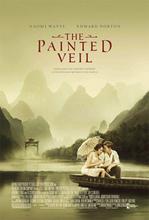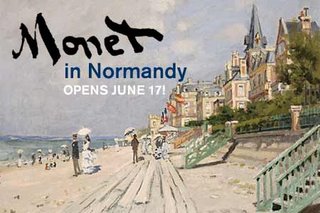Tonight as part of the
Duke Screen Society, nine short films were shown. I missed the first, but am copying here the description from the Screen Society about all nine, with my comments {in curly brackets}. I'm glad that school is back in session and the Duke films have begun!
Mt. Head/Atama Yama ( dir. Koji Yamamura, 2002, 10 min, Japan)A s

tingy man eats some cherry seeds, only to find that a cherry tree has grown from his head.
Mt. Head was nominated for an Academy Award® for best animated short. {I'm sorry that I missed this - from what I heard, it sounds interesting with a recursive plot.}
Recycle (dir. Vasco Lucas Nunes & Ondi Timoner, 2004, 6 min, USA)
Recycle is a portrait of a day in the life of Miguel Dias in the Los Angeles neighborhood of Echo Park. The homeless poet is recovering from substance abuse through the philosophy of recycling life. Diaz uses all the thrown away items he collects to make a community garden in the median of his street, while offering his insights on survival and nature. It has played at Sundance and Cannes and won the Sustainability Award at the Media That Matters Film Festival. {I did not find this to be particuarly interesting.}
The Box Man (dir. Nirvan Mullick, 2002, 5 min, USA) In a cold empty city, a man encounters a cardboard box. The box has a small rectangular slit that compels him to take a closer look inside. A tale of urban paranoia and the desire to remain hidden.
The Box Man was Winner of the AFI Fest Audience Award and a Student Academy Award® Finalist. {It was somewhat interesting, but disturbing.}
 Black Rider/Schwarzfahrer
Black Rider/Schwarzfahrer (dir. Pepe Danquar, 1993, 12 min, Germany) Pepe Danquart's Academy Award winning short film captures the dignity of a man confronted with a problem many of us may have faced in a foreign culture. And when dealing with ignorance and intolerance, nothing makes more of a statement than the power of humor. {Somewhat interesting but I didn't follow the importance of some seeming irrelevant quirks, such as time spent on a man whose motorbike wouldn't start - what role did they have especially in such a short film?}
Time Out (dir. Robbie Chafitz, 2003, 8 min, USA)In this dark comedy, which was originally performed live onstage, two hard-bitten kindergartners--played by adult actors--share a "time out" in a remote corner of the school playground. Together they enter a world of anxiety, despair, revenge and cooties. This film premiered at Sundance and was named Best Comedy Short at the New York International Film & Video Festival. {I quite enjoyed this unique film! It was quite funny!}
Birthday Boy (dir. Sejong Park, 2004, 10 min, Australia)The Korean War, 1951: it's little Manuk's birthday and he is playing on the streets of his village dreaming of life on the front lines where his father is a soldier. When Manuk returns home he opens a birthday present that will change his life.
Birthday Boy was nominated for an Academy Award® for best animated short film. {I didn't quite appreciate the film's significance.}
Lick the Star (dir. Sofia Coppola, 1998, 14 min, USA)Sofia Coppola's directorial debut revisits adolescence and explores the politics of teenage girls during a pivotal time in their lives. Four middle school girls obsessed with the V.C. Andrews novel,
Flowers in the Attic, plot to poison the school's boys. Their campaign: poison the boys in their school in a secret plan, codename: "Lick the Star." {I didn't enjoy the film or its unreal and cruel plot.}
Two Cars, One Night (dir. Taika Waititi, 2005, 11 min, New Zealand) Three children in two cars, wait for their parents one night outside a rural pub. A little love story. {Cute and fun.}
The Mantis Parable (dir. Josh Staub, 2005, 9 min, USA)Created in its entirety by first-time filmmaker, Josh Staub,
The Mantis Parable is the tale of a humble caterpillar trapped in a bug collector's jar and in need of a helping hand. This film has won awards at over 10 film festivals, including the Seattle International Film Festival. {The best of the films shown tonight, the animation was phenomenal and the story engaging!}



















